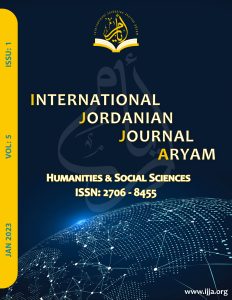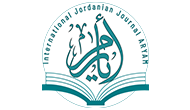Received: 24-03-2020 Revised: 28-03-2020 Accepted: 09-06-2020
Abstract: Kantian ethics is based on principles that search for their basis in pure reason and in its conceptual structure that is independent of experience and the self-representations that accompany it, rejecting nature or realistic experience as its starting point. Therefore, it was natural that the starting point for it would be a purely metaphysical idea: “freedom”, without which it is impossible to talk about will. Duty, as a coercion exercised by reason on free will, is embodied in absolute moral commands; It is the same commands that make a person a moral legislator, who is full of the “personality” characteristic because he respects the moral law issued by him as a rational being and is distinguished from other beings by his moral dimension. Through this respect for the moral law, the person acquires a dignity that elevates him among all beings, and makes him an end in himself. the nature of the interdependence that combines those features; It is a synergistic interdependence, and freedom and will, and duty and its accompaniment to responsibility, respect and dignity can be considered traits without which the Kantian moral person cannot be achieved; So that a person is not a person unless he carries attributes that elevate him above his material existence in nature and above other beings belonging to it.
Keywords: philosophy of ethics, freedom, duty, moral law, will, responsibility, reason, Immanuel Kant, Nietzsche.
DOI: https://zenodo.org/records/10546747
IJJA is a Humanities and Social Sciences publishing journal committed towards providing a platform to outstanding scientists and researchers to exhibit their findings for the furtherance of Humanities and Social Sciences.
The International Jordanian Journal, Aryam Journal of Humanities and Social Sciences (IJJA) (ISSN print: 2710-3005), (ISSN Online: 2706 – 8455) welcomes high quality contributions investigating topics in the fields of Humanities and Social Sciences .
![42cd5crossreff[1]](https://aijj.org/wp-content/uploads/2023/04/42cd5crossreff1.jpg)
![6357copenaccsess[1]](https://aijj.org/wp-content/uploads/2023/04/6357copenaccsess1.png)
![97aa6road[1]](https://aijj.org/wp-content/uploads/2023/04/97aa6road1.jpg)

